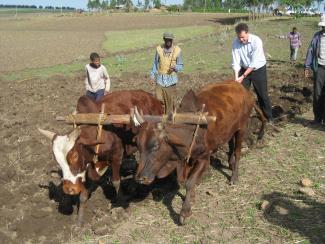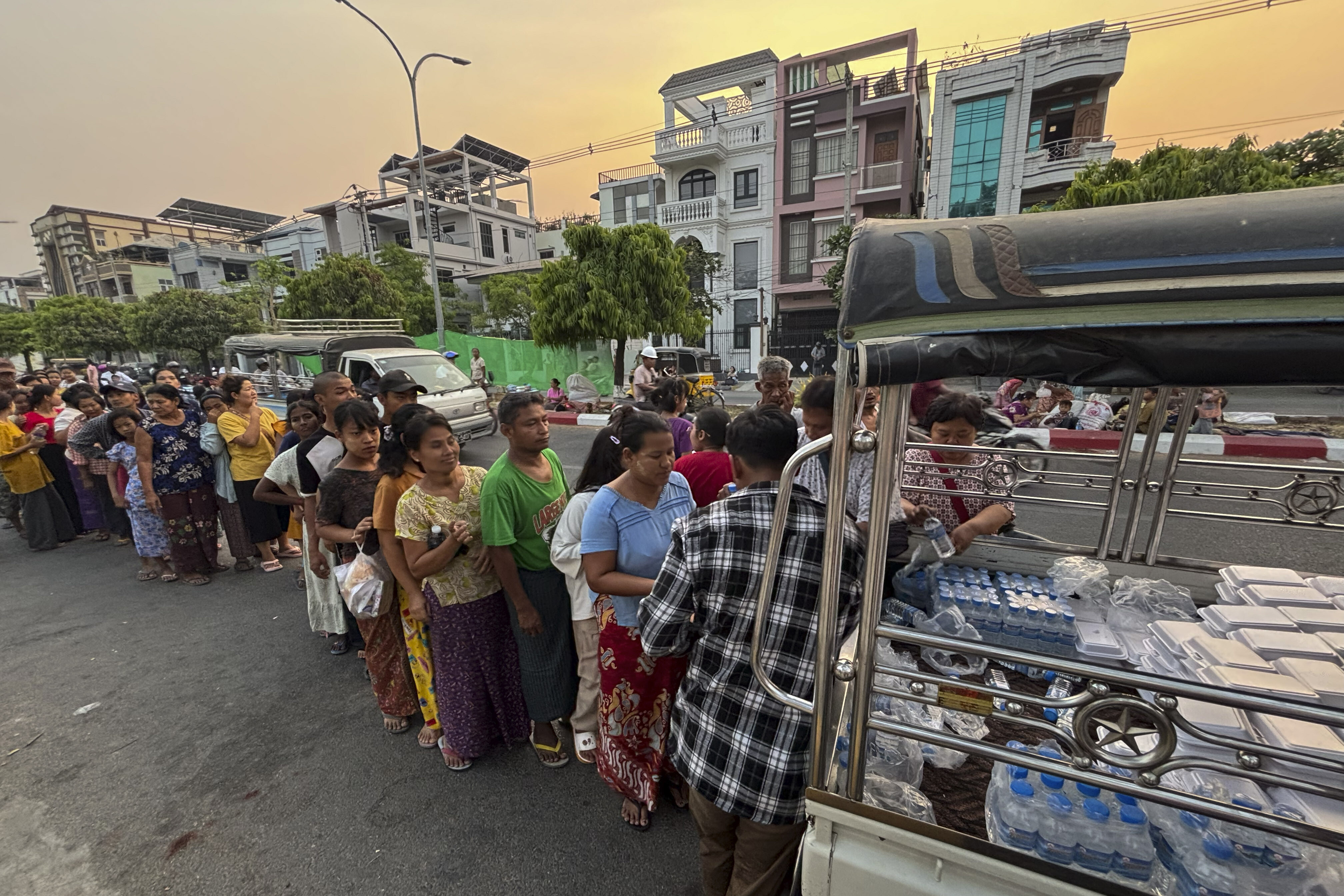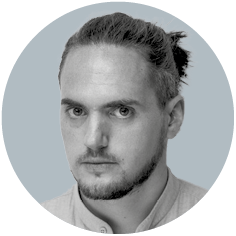Germany’s Federal Government
“Humanity’s common future”
out the fundamentals of his policies in an interview with D+C/E+Z.

In regard to development policy, the coalition agreement between the CSU, the Christian Democratic Union (CDU) and the Social Democratic Party (SPD) is broadly conceived. It cites all the issues that are currently on the international agenda, ranging from humanitarian aid to poverty reduction and from environmental protection to the human rights of sexual minorities. What are your personal priorities?
Germany’s Federal Ministry for Economic Cooperation and Development (BMZ) is committed to addressing global questions of survival for the sake of a shared future. Relevant issues include the growth of the world population, hunger, poverty, inequality, climate change and increasing conflicts. In our globalised world, problems and causes are very closely inter-related. What happens in one part of the world has a direct impact on all others. As members of a global community, we have to cooperate on solutions. Therefore I want to have an open dialogue with representatives of civil society and other actors in Germany soon in order to draft a plan to achieve policy objectives.
The year 2015 is especially important from a development perspective, and it will occur during the term of the current Bundestag. Humankind obviously needs a new global agenda for international cooperation. The new agenda must tackle the two greatest challenges we are facing: ending extreme hunger and poverty all over the world and sustaining the basis for life on Earth. We must respect the integrity of God’s creation. Development and sustainability are two sides of the same coin. I hope to define new development goals with our European and international partners.
I am also keen on applying the experience I gained at Germany’s Federal Ministry for Agriculture, where I focused on the issue of global food security. For instance, we implemented projects in Ethiopia. Concern for how to feed the world population is a specific starting point for discussing poverty reduction. Today, one billion people are going hungry. Three fourths of the world’s starving people – and of the poor in general – live in the rural areas of the developing world, so it is vital that we devote more attention to those regions.
What will ensure food security in the future: technology-intensive, high-yield agriculture or small organic family farms? Or is that dichotomy wrong?
It has been estimated that the planet will be home to 9.6 billion people in 2050. The vast majority of these people will live in developing and newly-industrialising countries. All experts say that Earth can feed that many people if we do things right. We have to increase the productivity of agriculture in developing countries, and we must do so in an environment-friendly, sustainable manner. I do not see a dichotomy between the two choices you present, but rather an urgent need for action in regard to most small farms in developing and newly-industrialising countries. In most cases, the yields can be significantly increased with relatively little effort. What is needed is access to modern production methods, seed, fertiliser and irrigation. Proper advice can achieve a lot. I was impressed by what I experienced in Ethiopia. We certainly need an integrated approach however: we must bring about rural change in a sustainable and socially equitable way. Among other things, that means providing access to suitable markets, generating jobs and investing in infrastructure, education and health care. National governments must create the conditions that are needed to stimulate agricultural production. In addition, we can provide expertise to local people at eye-level.
The biodiversity of crops is the basis of all agriculture. But unfortunately it is dwindling. What can be done to stop the erosion of genetic resources?
You’re absolutely right. Biodiversity matters. It is important for growing crops. It is important to producers and consumers. Preserving biodiversity is one of my top concerns. The BMZ gives € 20 million annually to the 15 research centres that form the Consultative Group of International Agricultural Research (CGIAR). These institutes run and use the world’s most important gene banks for cultivars. Moreover, we support the preservation of biodiversity in situ through a variety of cooperation projects that include the cultivation and protection of traditional landraces.
Biodiversity is only one of many important global public goods. How are global public goods and development policy connected?
Development policy is about promoting global peace and humanity’s common future. Accordingly, we are committed to protecting global public goods. Industrialised countries have moral and ethical responsibilities. Consider climate change: industrialised countries are the main culprits, but developing countries are hardest hit by the impact. However, addressing climate change is in our own best interest too. The same is true of peace and security, an intact environment, fair rules for world trade or the stability of global financial architecture. We will only safeguard our own prosperity if we strive for the greater good of the entire global community. We must always bear in mind the future prospects of other countries than our own.
One aspect is to address the issue of poverty-driven migration head on. Development policy-makers can help to end this phenomenon by improving the lives of people in their home countries, for instance by building infrastructure and creating jobs.
What is the right balance between bilateral and multilateral engagement?
The goal is to use the development instruments at our disposal as effectively as possible. We have to look and see what the respective advantages are, and we must maintain some flexibility. When we set out to protect our shared global goods as an international community, we must do so at a multilateral level. The United Nations or the World Trade Organisation (WTO) are the appropriate venues for that kind of effort. Bilateral approaches, on the other hand, have proven effective when we cooperate on projects with local partners.
The new coalition agreement places less emphasis on the private sector than the previous agreement, which was signed by the CDU, CSU and the Free Democratic Party (FDP) four years ago. Is this topic now receiving the proper attention?
Many forces must pull together to meet today’s challenges. That certainly includes the private sector! By making long-term investments in developing countries, corporations can be an important engine of growth. But I don’t believe that free markets are the only drivers of development. I think that success depends on a socially responsible and environmentally sustainable market economy that respects human rights and ecological standards.
Your predecessor, Dirk Niebel, made his mark by merging the German development agencies GTZ, DED and InWEnt into the GIZ, the German Agency for International Cooperation. He also founded ENGAGEMENT GLOBAL and DEval, the independent evaluation institute. Are you planning to reform Germany’s development institutions further?
The reforms you mention were important, and I think the next step should be the consolidation of the new set-up. We have to make sure that every tool is applied in the best way possible. If that is not the case, or if conflicts arise, we have to make changes. Moreover, the cooperation of GIZ and KfW development bank should become closer.
In recent decades, authoritarian-run countries such as China or Vietnam have reduced poverty faster than democracies like India or Bangladesh. Human-rights violations are unacceptable, but what is it that China and Vietnam are doing right?
Many newly-industrialising countries have experienced rapid economic development in recent decades, and they have become important engines of regional and global growth. But that’s only one side of the story. The gap between rich and poor is growing larger and larger in many of the countries concerned. Serious environmental problems are another downside of rapid growth. Just consider the destruction of Brazil’s rainforest or China’s awful air pollution.
What role can civil society play in compensating for government shortcomings in democratic as well as authoritarian-run states?
The involvement of civil society is the foundation of any democracy. It provides a check on government activity, both in Germany and in our partner countries. In countries where we cannot or do not want to cooperate at a national level, we can reach out to people in need through partners in civil society. That is extremely valuable! Questions by Hans Dembowski.
Gerd Müller is Germany’s federal minister for economic cooperation and development. http://www.bmz.de












